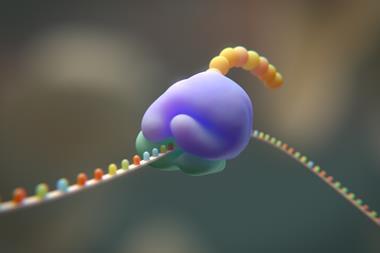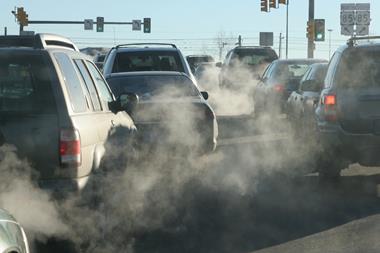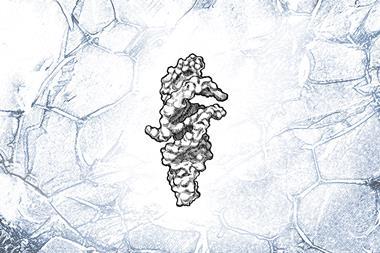BASF makes record spend
German chemical giant BASF rounded off its second quarter with an unprecedented spending spree. In just over four weeks, the company has made three major acquisitions, at a total cost of over £5 billion.
At the beginning of June, BASF bought the pigment and catalyst maker Engelhard at a record price of $5.6 billion (£3 billion) following a drawn-out hostile takeover lasting almost six months - the largest acquisition in BASF’s history.
It followed this up with announcements four weeks later that it had acquired polymer manufacturer Johnson Polymer from Johnson Diversey for $470 million (£255 million), and also Degussa’s construction chemicals business for €2.7 billion (£1.9 billion).
Both the money involved and the rate of spend are unprecedented, a BASF spokesperson told Chemistry World. The fact these acquisitions took place over such a short period of time was simply due to the ’window of opportunity’ available, he added. But all three companies have a strong track record in research and development, and are less vulnerable to changes in the price and availability of crude hydrocarbon reserves, unlike BASF’s core polyolefins business.
The acquisitions were funded through what the company says is a strong operating cash flow, and through the proceeds from three bonds issued by BASF earlier this year. But there’s more to come.
BASF says it is always looking at profitable companies in growth markets in all regions. China is clearly a target: BASF signed a $500 million (£272 million) agreement with the Chinese petrochemical company Sinopec to expand their joint chemical site in Nanjing, China, on 10 July. This will involve increasing the capacity of their steam cracker that currently produces 600,000 metric tons of ethylene per year to around 750,000 tons per year, and investing in more chemical plants to process its products. The Nanjing site was opened last year, when BASF and Sinopec launched a 50:50 venture. It’s all good news for BASF chairman Jürgen Hambrecht, whose appointment was due to expire next year. The company announced an extension to his tenure, and his position is now secure until 2011.
TeGenero files for insolvency
TeGenero, the German pharmaceutical company whose therapeutic monoclonal antibody nearly killed several subjects enrolled on a Phase I clinical trial, has filed for the commencement of insolvency proceedings.
’The unforeseeable adverse reactions caused by TGN1412 in the TGN1412-HV Phase I trial have made it impossible to attract the investment necessary for the company to continue operations,’ reads a statement from the company.
Following the filing for insolvency, the company’s assets and its management will be supervised, in accordance with German rules, by an interim-insolvency receiver until insolvency procedures have been initiated by the relevant court. The procedures are expected to commence no later than three months from the date of filing for insolvency.
Particle characterisers merge
Malvern Instruments, UK, which makes particle and rheological characterization systems, has acquired the assets of Spectral Dimensions, US, a privately held company producing near infrared chemical imaging instrumentation and software. Spectral Dimensions will cease trading and the organization will be integrated into Malvern’s US subsidiary in Southborough, Massachusetts. The chemical imaging development and applications teams will continue to operate from a former Spectral Dimensions facility in Maryland. Financial terms were not disclosed.
’Spectral Dimensions leads the field in chemical imaging technology,’ said Paul Walker, managing director of Malvern Instruments. ’The company has a strong team with a wealth of scientific and technical expertise, and has developed a suite of chemical imaging solutions.’
Spectral Dimensions’ established customer base is primarily in the pharmaceutical industry.
Breath of fresh air for J&J
US consumer healthcare company Johnson & Johnson has agreed a deal to buy close rivals Pfizer Consumer Healthcare for $16.6 billion (£9 billion) cash. The transaction is expected to close by the end of 2006.
Both companies are well established in over-the-counter healthcare products: from J&J’s Band-Aid sticky plasters and Neutrogena skin-care products, to Pfizer’s Listerine mouthwash and Nicorette treatments to help people stop smoking.
Acquisition of the Pfizer business will put J&J in leadership positions in several new categories, notably smoking cessation and mouthwash, said officials at J&J.
The consumer healthcare market is growing worldwide, notably with rising disposable income in developing countries, said J&J CEO William Weldon.
Pfizer has said it will use the proceeds from the sale to drive long-term growth, building on recent acquisitions of product candidates and technologies in priority areas including Alzheimer’s disease, diabetes, obesity and infectious disease.
Giant bubble in London park
UK gas company BOC has pumped more than 5500 cubic metres of helium into a gigantic bubble outside the Serpentine art gallery in Kensington Gardens, London.
The ovoid-shaped inflatable canopy, created by Dutch architect Rem Koolhaas and engineering firm Arup, took eight hours to fill and could reportedly support two fully grown elephants. It will be on show until 15 October.
Chemical criminals
Accountancy firm PricewaterhouseCoopers has launched a study into economic crime in the chemicals industry.
As the study was launched, the company released results of a global economic crime survey showing that more than a third of chemical companies have experienced economic crime and need to tighten controls to combat the threat and recover losses. Over 160 chemicals companies based in 30 countries took part in the survey.
Global giants for cleaner power
Two of the world’s largest companies, energy giant BP and power generation and technology company GE, have joined forces to develop hydrogen power plants and carbon capture and sequestration (CCS) technologies. BP has already announced plans to use GE technology in two hydrogen power CCS projects in Scotland and California, US, and up to 15 more projects are planned in the next decade.
The combination of GE’s gas turbine technology, and BP’s corporate strength will make these projects ’hugely significant’ according to Jon Gibbins, a mechanical engineer at Imperial College London, UK.
Mind how you go
The Health and Safety Executive (HSE) is urging businesses to spend less time ’dotting i’s and crossing t’s’ and more time putting practical actions into effect. The executive has issued a new risk assessment guide explaining what is, and what isn’t, expected.
’We want to save lives, not tie businesses up in red tape,’ said the HSE deputy chief executive, Jonathan Rees. ’[Risk assessment] should be a practical way of protecting people from real harm and suffering, not a bureaucratic back-covering exercise.’
The guidance Five steps to risk assessment, which was first published in 1993, has been revised and simplified with the aim of making it easier for normal business people, not just health and safety experts, to use. The 11-page booklet is available at the HSE website.
MRAM on the market
Computer memory chips based on magnetoresistive materials have finally reached the market place, according to Freescale Semiconductor, Texas, US, a Motorola spin-off company.
Magnetoresistive random-access memory (MRAM) stores data using magnetic moments, rather than electrical charge, which means that it can retain information indefinitely without needing power. MRAM can also read and write bits much faster than flash memory, whose data is prone to degradation over time. The magnetic materials used have been intensively researched for more than a decade.
Freescale says that the chip will be particularly useful for small, low-power devices such as mobile phones.












No comments yet